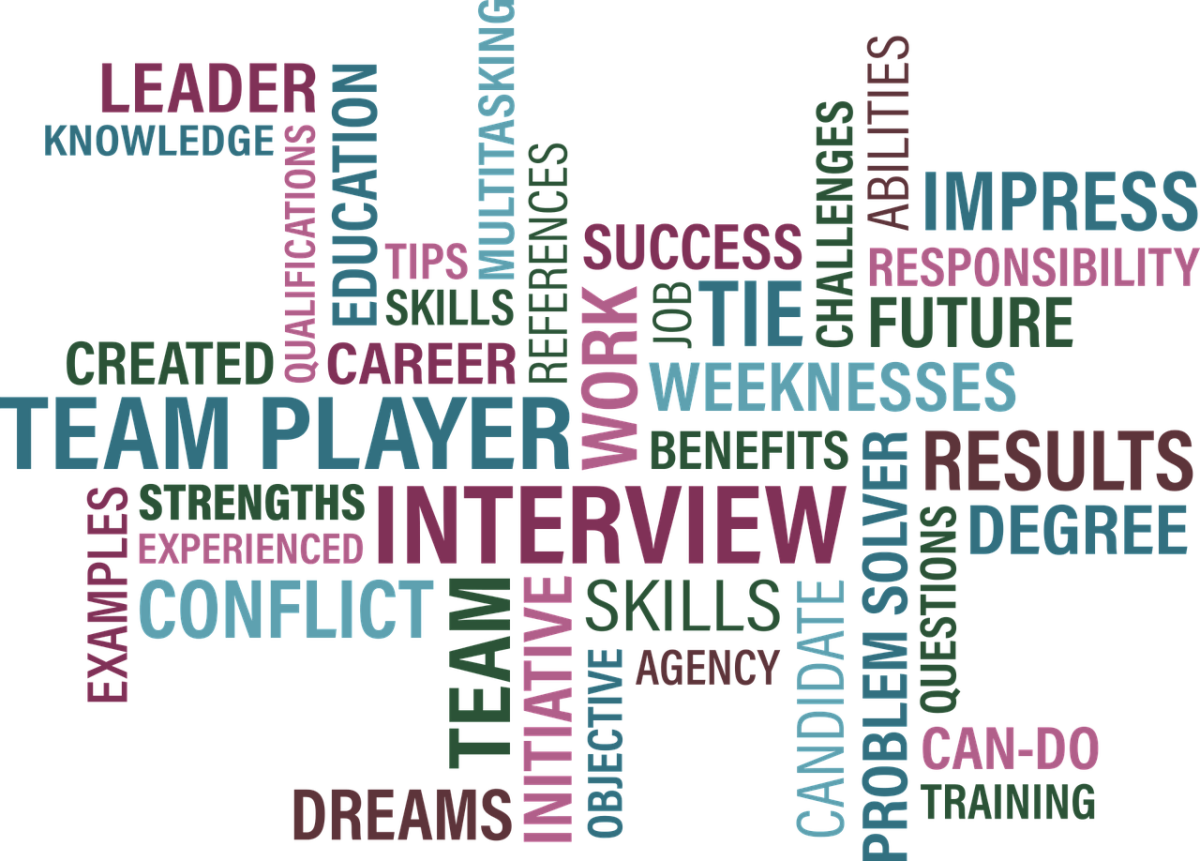UPSC IAS Interviews - Tips, Facts and Myths
Interview is the last step of the IAS Exam. But it is one of the most crucial as well because every single mark at this stage can decide your fate. A bad day of interview can ruin the chances of a good career. Before interviews some students have high enough marks in the merit list while others are just making the cut. It is very difficult for the marginal candidates to get a post without an exceptional performance during interview. So, every candidate who goes out at interview should prepare in such a way that even if he is at the margins he should be there in the final list. Otherwise all his efforts will be fruitless.
IAS Exam Interview - Real Situation
Have you attended any Government Exam Interview?
It should be kept in mind that unlike written tests, interview marks depend a lot on the impression of the candidate on the interviewer, conduct of the candidate and candidate's behavioral traits. UPSC does not check the raw knowledge of the candidate, it checks their personality. Please watch the video on above, it will help you to understand the tips given below. The animation is an adaptation of a real UPSC interview of the candidate Vinay Kumar in 2011. The candidate got 210/300 marks. Since the candidate could not recall the complete interview, it is just a part of the complete Interview. Also, some of the details like candidate details and a few answers have been modified. Due to technical limitations of the software, this interview is in the form of a one-to-one interaction. Thus questions of all the panel members are merged and are asked by one interviewer. The idea is to outline a smooth interview process.
1. Know Yourself Well
It is very important to be completely aware about yourself, your strengths and your weaknesses. It starts with filling of the interview form which contains your past experiences and your personal details. The first question that you are going to encounter in the Interview hall is, "Tell us something about yourself?" or "Please introduce yourself". This is a straight forward questions with a constant answer. But still many students fail to make o most of this question either because they undermine the importance of introduction or are not confident about themselves. If you are about to answer this question in a smooth manner you will gain in two ways. One, the panel members will feel comfortable about you. Second, you will feel relaxed because the first impression is very important. They also ask a lot of questions from your bio-data, therefore it is very important to be true and comfortable while answering questions about your personal experiences and interests.
Apart from knowing yourself, you should also be well acquainted with the State and District you represent. Your community or religion can also lead to a stream of questions.
Knowing yourself well not only gives you the confidence and ease of answering questions about you it also gives you a handy weapon i.e. to guide the course of the interview. If you are well aware about what you know best, you can write about it in the bio-data. They will surely ask questions from bio-data. Similarly, avoid writing or speaking about the topics about your difficult areas. For example if you don't want to talk about some of the places you have lived in, you don't need to mention it in your introduction or bio-data.
2. Reasoning and Consistency of Thought
Interviewers expect the candidates to be confident about their thought process. You should have well developed reasoning so that you can present your argument in a confident way even when the interviews try to oppose your point of view. This doesn't mean that you have to prove yourself right on every point. You have to support your arguments and view points with valid statements. Your statements need to be consistent with each other. You also need to make sure that you are totally calm when your arguments are refuted by the members. You can reason well only when you are ready to listen to them and grasp their point of view.
3. Range and Depth of understanding
The interview is also a test of range and depth of candidate's understanding of the world. While the candidates can get away in written exams with reproducing concepts read in books, the interview gives the tool to see how much of that knowledge is imbibed by the candidate. This is because the candidate gets very little time to think before the answering. Whatever comes out of the mouth o the candidate gives an idea about how well and minutely he understands the events occurring in and around him.
4. Concern for the Society
Since you are going to by recruited for the Civil Service you have to exhibit that you have a strong concern for the society. They will ask several question which will require your viewpoint on the prevailing social issues. They want to check whether you want to take up civil service for personal gains or for the betterment of society. It is not possible that everyone is motivated to serve the society. So, you have to put yourself in the shoes of a patriot and respond accordingly. If you have a natural inclination for society it is very good. Otherwise, try to inculcate a love for the society. It is very difficult to fool the with fake sympathy understanding of the society.
5. Ability to Communicate
It is very important that whatever you are trying to say reaches the panel members in a clear and crisp manner. You should use your words very carefully. Do not think that the members of the panel are very learned and will understand technical language. Each of them is from different background. If you are asked a science question, don't reply in the manner that only he can understand your answer. Reply should satisfy all the panel members. This is because your final rating will be done by summing the individual ratings of various members sitting in the room.
6. Choice of reliable Sources
It is very important to understand what is a dependable source of information and what is not. Media News channels like Aaj Tak or Times Now, etc. are not dependable source of information. On the other hand, DD News is a reliable source. Similar is the case with print media and books. Use of unreliable sources of information can affect your impression as well as answers. Therefore, you should keep yourself away from these sources. Bad sources for UPSC interviewers are somewhat like prohibited substances are for sportsmen.
7. A Pleasant nature
Interviewers are more likely to make it easy for you if you are pleasant and cheerful with them. You may be a bit nervous but that should not prevent you from coming up with an occasional smile. This helps easing the tensions in the atmosphere and also gives you some time to think out the answers. This also tells about your social traits. A good leader is expected to control the surrounding and make it comfortable for all.
What Interviews do not want
There are many myths about the objectives of the Personal Interviews which need to be kept out of mind before going to the interview. I have summed them below.
1. Impeccable vocabulary
Communicating well doesn't mean that you should have a flashy vocabulary or a fast accent. In fact, it is advised that your should refrain from using rare words. This is due to the fact that you are more likely to use a wrong word by using difficult words. Even if you can't think of the best word try to complete the sentence with basic words. This will let the panel know that you don't have an English speaking background and they will adjust to you. Also, try to avoid commenting on their statements with phrases like 'I agree', 'of course', etc. Try to behave as a student behaves in front of a teacher.
2. Fact based General Knowledge
The most common fear among the candidates while going to an interview is the failure to answer questions. It should be made clear that your performance in the interview is not judged by the number or the percentage of correct answers. Besides this, knowledge of the subjects has already been tested via extensive mains tests. There is no need for the panel to test you again on the same criteria.
3. Conclusive Answers
While presenting your viewpoint or analysis on a subject try to use the phrases like 'I think' and 'According to me'. This will make them more cordial with you and they may themselves pitch in with correct answers in case you are wrong. On the other hand, if you try to draw conclusions as if you can not be wrong, they may get irritated and may land you in tricky questions. It is a delicate area and you have to appease them to your side. Most of the good interviews are in the form of casual interactions.
Related Articles
- UPSC Mains New Pattern Change from 2013 - Chairman
Chairman D P Agarwal said that UPSC has already constituted a panel to look into the matter. Its report is expected to come out early next year. "It is most likely to be in effect from 2013." New pattern will include... - What is the IAS Exam
The IAS (Indian Administrative Services) Exam is one of the most prestigious in India. Find out about IAS Exam details, eligibility, pattern and more. - UPSC Prelim - 5 Must Books To Clear CSAT I and II
A lot of aspirants with good mains preparation take CSAT lightly only to find that they have wasted one precious year of their lives. A lot depends on the choice of study material. Relying on a all-in-one manual has its obvious risks. This is a ... - IAS Exam (CSAT) 2012: Syllabus, Suggested Books, and...
When UPSC changed the pattern of IAS Preliminary examination there were lots of confusion about the exact nature of questions that will be asked. Some coaching institutes used this confusion among aspirants in their advantage. They charged huge... - Steps to pass UPSC preliminary and main exams
Pass in UPSC preliminary and main exam with ease without any haste by following the guidelines that I give you. UPSC exams are commonly referred as IAS examination for various central governmental jobs. It... - IAS Exams Interview Questions and Tips
The civil services IAS interview conducted by the UPSC is not just another interview. Many people consider it THE interview to clear. Scoring well in the IAS interview requires a combination of knowledge, smartness, alertness, and other qualities...






